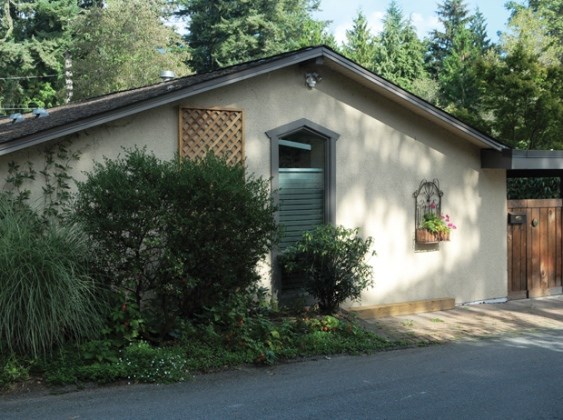So far, there's only been a small amount of interest in coach houses in West Vancouver.
After a lengthy public consultation period, council approved coach houses in July 2014, but in the past year only seven homeowners have applied to add the new form of housing to their properties.
Of that number, two applications have been approved, four are in progress and one was withdrawn by the applicant.
To generate more interest in adding mini rental homes to the district's housing stock, council voted unanimously on Nov. 30 in favour of supporting a staff request to further examine actions to "incentivize" coach house development.
"In summary we're looking at incentives to make rental coach houses more attractive when a character house or established house is maintained on the property," community planner James Allan told council.
Allan added that staff also want to "try and streamline the development permit process as well as the building permit process to help aid this type of housing to be implemented."
Staff noted that the primary reasons for homeowners wanting to add a coach house are: downsizing; designing a custom living unity for a family member; and creating a rental unit with more privacy, for both the homeowner and tenant.
District staff say coach houses add different housing choices and affordability in the district, as well as helping to preserve established neighbourhood character.
Still, that hasn't translated into a lot of local interest.
"There has been limited take-up (of coach houses) as anticipated," explained Allan. "Rental coach houses were only permitted as an alternative to a secondary suite, and where there is available floor area on the property. There is limited economic incentive to build these. They are a more expensive option than a secondary suite," he said.
But the small suites add value to the community.
When asked by Coun. Michael Lewis about possible types of incentives, Allan noted that much of the district's older housing stock was built prior to a change in the 1990s that incentivized in-ground basements and made the area exempt from overall floor-area calculations.
That means owners of older homes with above-ground basements must include that space towards their total floor area calculations, which may leave many without enough remaining floor area to accommodate a coach house and thus providing an unintended incentive to rebuild completely.
"We've had discussions with potential applicants where they've got an older one-and-half-storey character house plus basement and they haven't been able to accommodate a coach house, so that's where we'd like to explore," said Allan.



